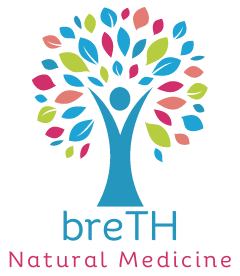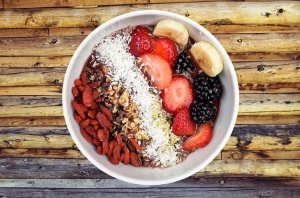Diverticulosis Diet + Lifestyle Hacks
Diverticulosis is a disorder where small pouches, called diverticula, develop in the wall of your large intestine. Most diverticulosis cases are seen in individuals over the age of 40 and in those with sedentary lifestyles and low fiber diets. Diverticulosis can turn into diverticulitis if any of the pouches becomes inflamed and this can become a potentially life-threatening condition. Below you will find common causes, symptoms, and some alternative treatments to addressing diverticulosis.
Common causes:
- Low fiber diet
- Chronic constipation
- Lack of regular excericse
- Chronic stress
- Chronic dehydration
- Obesity
- Gallbladder disease
- Tobacco smoking
- Excess alcohol and caffeine intake
- Medications such as steroids, nSAIDS, and opiates
- Slow colon motility
Symptoms:
- Some individuals don’t have any symptoms, especially in the earlier stages of the disease
- Abdominal pain or tenderness, typically in the lower left side of the abdomen, which may be relieved by passing gas or having a bowel movement
- Bloating
- Constipation or diarrhea
- Rectal bleeding
Diverticulosis is diagnosed via a colonoscopy, and, often times found on a routine colonoscopy.
Natural Treatment Methods:
- Lifestyle Recommendations:
- Castor Oil Packs are a great home therapy to implement to lower inflammation in the digestive tract and gently promote liver detoxification.
- Diverticulosis diet plan:
- Drink half of your body weight in fluid ounces of water per day
- Eat in a relaxed state and chew your food thoroughly
- Achieve about 50 grams of fiber per day from fresh vegetables, fruits, legumes, nuts and seeds. These are listed according to the highest fiber source per cup (except for nuts and seeds, which are per ounce).
- Vegetables: acorn squash, collard greens, artichokes, butternut squash, parsnips, kale, broccoli, carrots, spinach, beet greens, brussel sprouts, snap beans, okra, sweet potatoes, swiss chard, asparagus, white button mushrooms, turnips, rutabagas, fennel
- Fruits: passionfruit, avocado, guava, raspberries, blackberries, pomegranate, persimmon, kiwi, pear, oranges, blueberries, apples, mango, strawberries.
- Legumes: navy beans, small white beans, adzuki beans, split peas, lentils, pinto beans, mung beans, black beans, chickpeas, great northern beans, kidney beans, large white beans, black eyed peas
- Nuts and Seeds: chia seeds, flaxseeds, pumpkin seeds, dried coconut, sesame seeds, almonds, pine nuts, pistachios, hazelnuts, pecans
- Drink 1 Tablespoon apple cider vinegar (Bragg’s Brand) with 2oz of water 15 minutes prior to meals
- Drink 1-2 cups of grass-fed bone broth daily
- Incorporate coconut oil, fresh ginger, and turmeric into your diet
- Complete 1 week’s worth of a diet diary and upload it into your patient portal
- Treatments:
- Using supplements in addition to the diet and lifestyle recommendations promotes the effectiveness of addressing diverticulosis. The following herbs and nutrients exert anti-inflammatory effects, soothing the lining of the digestive tract, and promote regular bowel movements.
- L-Glutamine
- Deglycyrrhizinated Licorice
- Aloe Vera Extract
- Slippery Elm
- Marshmallow
- Chamomile
- Okra Extract
- Methylsulfonylmethane (MSM)
- Zinc Carnosine
- GI Revive Powder contains the nutrients listed above.
- Using supplements in addition to the diet and lifestyle recommendations promotes the effectiveness of addressing diverticulosis. The following herbs and nutrients exert anti-inflammatory effects, soothing the lining of the digestive tract, and promote regular bowel movements.
If you have any questions or need specific guidance on evaluating your health concerns, schedule your complimentary 10 minute consultation with Dr. Yas by booking online or calling 480-779-8854.

